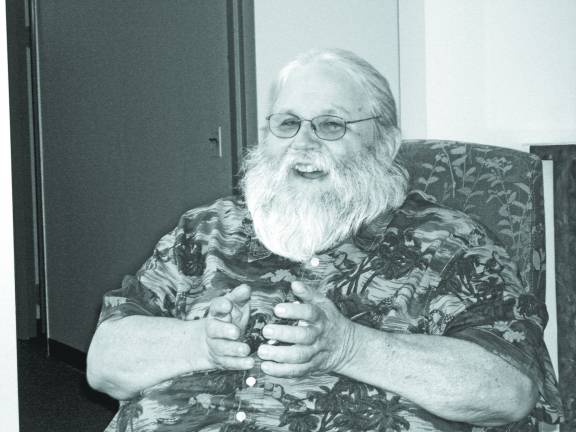New PTSD clinic help veterans in just a few sessions

By Geri Corey
MIDDLETOWN — With the influx of military veterans returning home from war, and the potential they are suffering post-traumatic stress disorder (PTSD), the need for therapy to help them resume a normal life is crucial.
To help meet this need, a PTSD clinic, The Road Back Trauma Center, recently opened at 27 Ridge St. in Middletown. Research Director Dr. Richard Gray said therapy at clinic is a short visualization process — called "Reconsolidation of Traumatic Memories," or RTM — that retrieves and alters memory of war and other stressful experiences. Treatment is normally three to four sessions lasting 45 minutes each.
This therapy is currently in the research stage but has shown early signs of success, noted Gray.
“Our treatment restructures the emotional memory of an incident, usually one that prompted fear of one’s own death, fear of others’ deaths, or a horror situation, while allowing the episodic memory to remain intact,” he said. At the conclusion of treatment, participants are able to tell a story normally — a story that once brought on terrible nightmares or sweat-producing flashbacks.
The process begins with a brief reminder of the trauma, which is stopped once there are signs of emotional arousal. The client then is led through a series of imagined movies of the incident, in an imagined movie theater, that are restructured so as not to evoke the emotional force of the memory.
Treatment is a rewriting of long-term memory that is awakened briefly, then stopped, and then brought into the present, Gray summarized.
“We teach visualization that changes feelings about the memory, allowing the person to tell a story without excessive emotion,” he said.
After completing treatment, one participant spoke of the freedom treatment gave him from a burden he carried around for years.
“It’s just a memory, not even an important memory, but for 40 years it controlled my life," he said.
Another participant offered gratitude: “Thanks for giving me my life back,” he said.
Treatment tested over 20 years
Since the center opened last February, six people have been cured, with calmness and normalcy restored to their lives. Two more are currently in therapy.
“Our treatment has been shown to be successful in 20 years of clinical use,” said Gray. "Now we’re trying to support this statistically. Our randomized control study allows us to provide evidence that scientists can honor. Our facility is the only place where this experiment is taking place.”
The collected data will be published, and this wider exposure of RTM can expand its use.
The trauma center is located in a donated auxiliary building of the former Horton Hospital. “We’re thankful he very kindly gave us this building rent free for clinic use," Gray said of the building's owner. "We’re very comfortable here.”
The clinic received a state grant in late January 2014 and opened its doors to clients in February. The staff is anticipating that more veterans with PTSD — from all wars — will come to the clinic, talk with the staff, and receive the treatment so necessary to resuming a normal life.
“Because veterans with PTSD tend to isolate themselves, are introverted, embarrassed, or have been disappointed or hurt by other treatments, they’re often hesitant to try again,” said Gray. He said that he and his staff are hoping word will get around that this treatment works, and that it’s simple, effective and takes just three to four sessions.
“Our therapy changes the actual structure of the memory," said Gray. "I believe we’re doing it. Here’s help for complete symptom alleviation. It’s a thrill every single time someone is cured.”
The RTM project is administered by The Research and Recognition Project Inc., a not-for-profit corporation headed by executive director Frank J. Bourke, PhD, of Corning.
Bourke heads a staff comprised of clinicians and supporters from around the world. The project has received support from academics and clinicians from Fairleigh Dickenson University, Ohio University, Marshall and Columbia Universities, as well as academic participants from Europe and Australia.
Veterans seeking treatment for PTSD or their family members can set up an intake appointment by calling 845-207-5178.